15
2023.08
Every afternoon or evening, when it's time to collect latex, rubber farmers in various mountain forests of Xishuangbanna ride motorcycles with several plastic drums on both sides of the rear seat.
They head to the rubber plantation, where every well-managed rubber tree has a large bowl tied with iron wire below the tapping line on the trunk. Latex drips into the bowl drop by drop, and the rubber farmers collect it tree by tree, leaning the bowls against the trunk.
Bulu Mula and his wife have already harvested two full drums of latex and are now adding formic acid to the mixing vessel. After stirring and settling for 15 minutes, the rectangular blocks of rubber coagulate. Collecting several blocks and transporting them to the rubber processing plant will bring in today's earnings.
"Our monthly income could reach about 5,000 to 6,000 yuan," Bulu said.
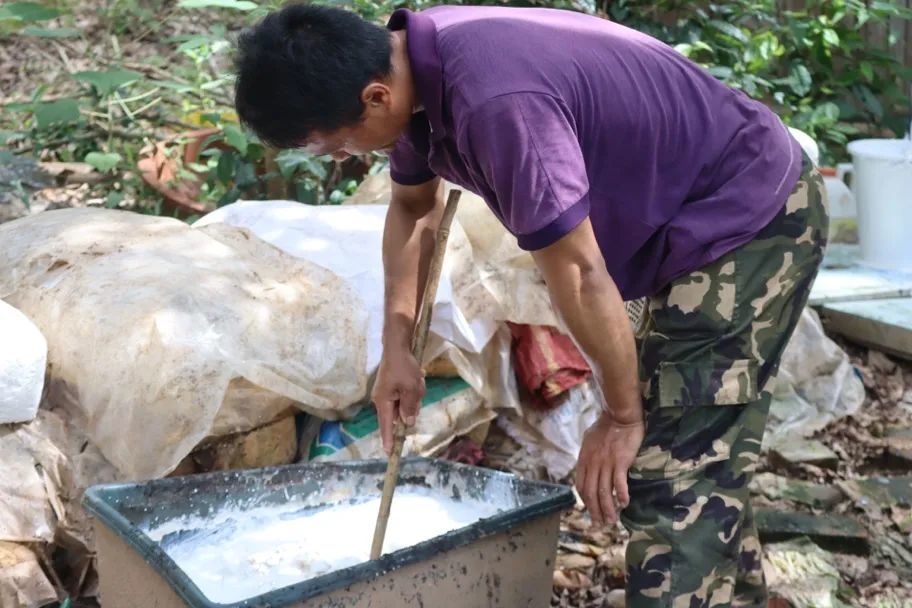
Bulu Mula is stirring the latex. Photo by Liu Zhaoxi
They come from Bapiao Village in Xishuangbanna, Southwest China’s Yunnan Province. The village consists of 62 households, the majority of whom are from the ethnic minority Jinuo people. The couple was among the first local farmers to engage in rubber planting for decades.
The local residents have lived for generations in the vast tropical virgin forests with towering ancient trees, which provide abundant natural resources.
In the 1970s and 80s, government of Xishuangbanna encouraged farmers to plant rubber on steep slopes, hoping to increase their household income while meeting the growing demand for natural rubber due to the rapidly industrializing economy in China.
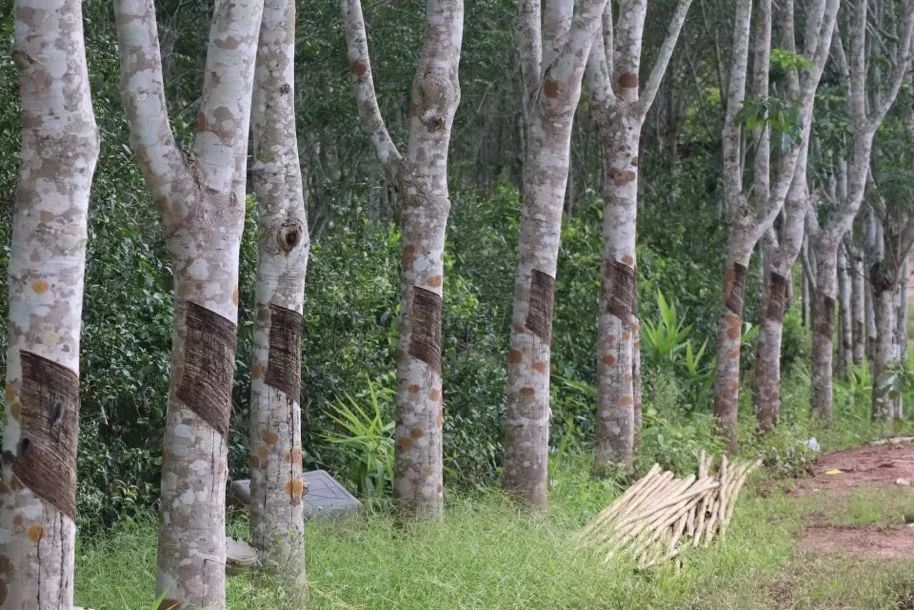
Rubber trees over the hillsides. Photo by Liu Zhaoxi
Over the years, rubber has become the main source of local economic income. According to the official data, by the end of 2020, the entire village had a rubber planting area of 3,385 mu (about 225 hectares) and a production of 149 tons.
In addition to the lush greenery, the landscape is adorned with clusters of green and yellow mango that catch people's attention. Mango trees are planted neatly and orderly along the hillsides.
"During the ripe season from June to July each year, you can find large and sweet mangoes everywhere. Just pick up the fallen fruits from the trees, and you can enjoy them," explained Bulu Du, a villager from Bapiao.
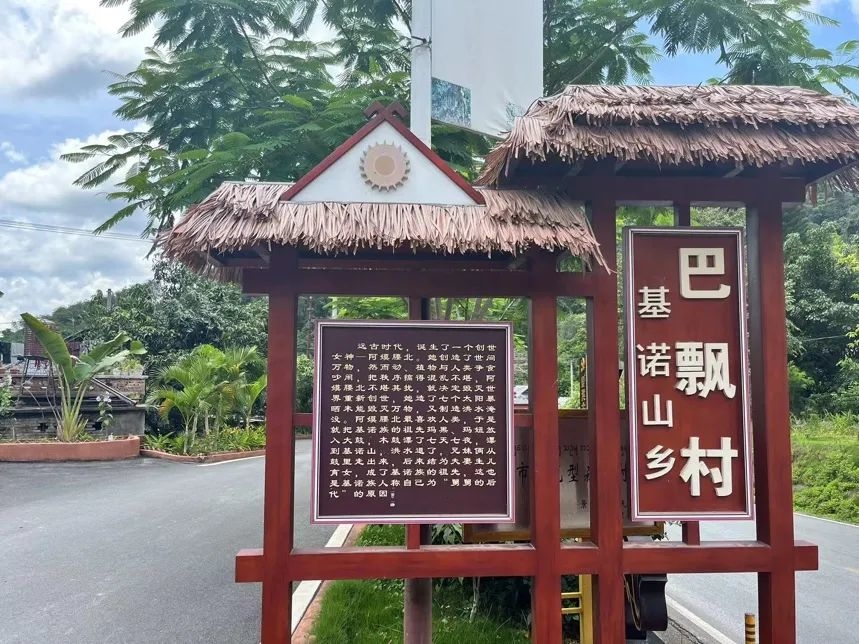
Bapiao Village in Xishuangbanna. Photo by Cao Pengyuan
Tang Haiyan also boasts a large area of mango trees. Meanwhile, tea is another main source of income for her family.
The Jinuo Mountain, where the village is located, is one of the six major tea mountains for Pu'er tea. Jinuo people has a long history of growing and processing tea.
Today, fragrant ancient tree tea also serves as a major source of income for local villagers. Building upon this tradition, people have combined it with current trends, expanding into rural e-commerce and livestreaming sales.
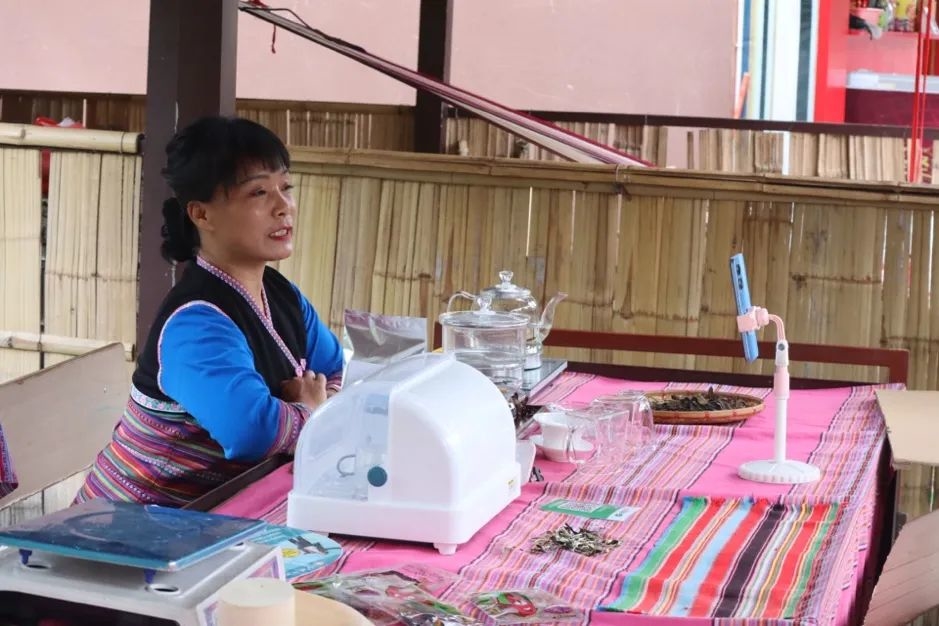
Tang is conducting the live-streaming. Photo by Liu Zhaoxi
Tang is one of the well-known live-streamers in the village. In 2022, she opened a Douyin (TikTok) account to sell her home-grown Pu'er tea, honey, and other products.
"At the peak of my livestream sessions, I usually have over a hundred viewers watching simultaneously," Tang said. "Offline our village also have a street for selling local specialties and handicrafts."
Villagers have taken the initiative to run guesthouses, where they have set up display shelves to sell local agricultural products directly to tourists.
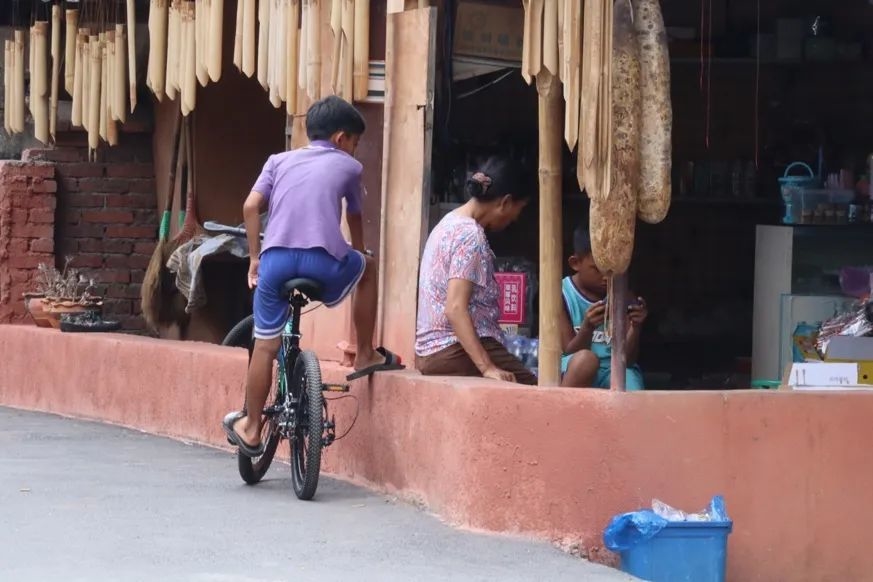
A glimpse of Bapiao Village. Photo by Liu Zhaoxi
Behind rubber, mangoes, and tea, the diversified development lies a shared aspiration for a prosperous life and a resonance with the country’s rural revitalization drive.
Stepping into the present-day Bapiao Village, visitors will see clean and tidy cement roads lead to rows of traditional wooden houses with bright and clean windows. The courtyards without fences are adorned with colorful flowers.
Featuring events to experience handcrafted tea-making, traditional Jinuo textile, and catering and homestay services, the village has become a sought-after destination, actively exploring for continuous prosperity.
撰文 / 刘兆希
排版 / 彭欣怡

2023.08.14 13:45
05
2025.09
05
2025.09
09
2025.06
 28:32
28:32
2025.06.19 08:55